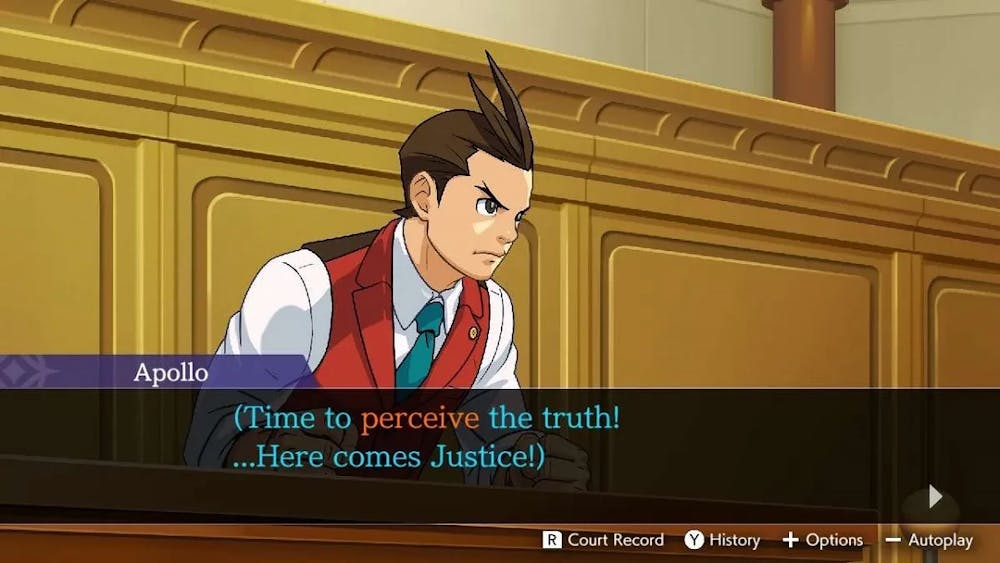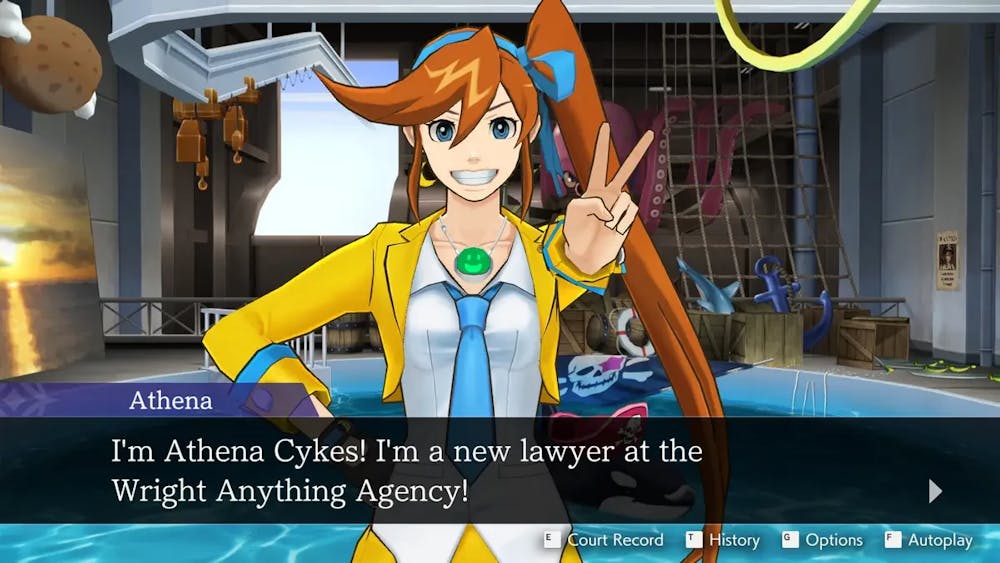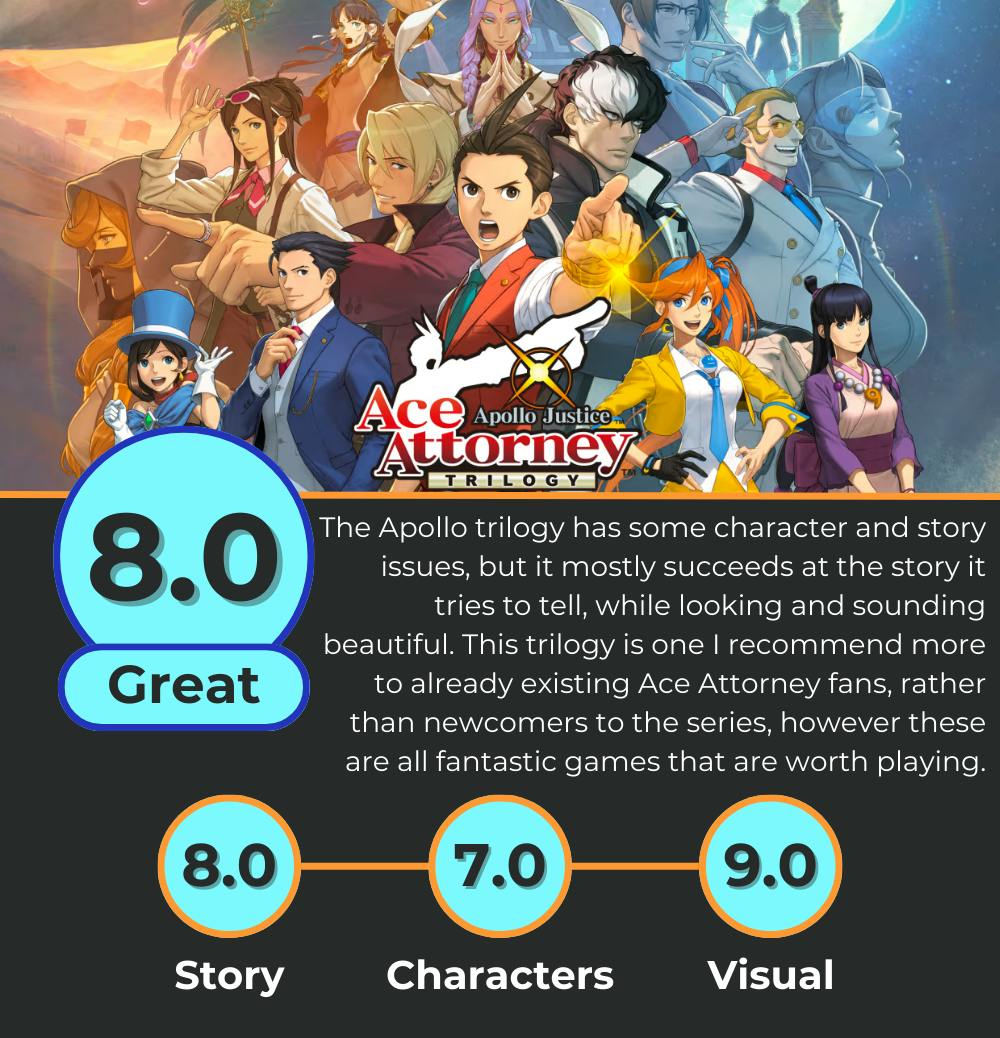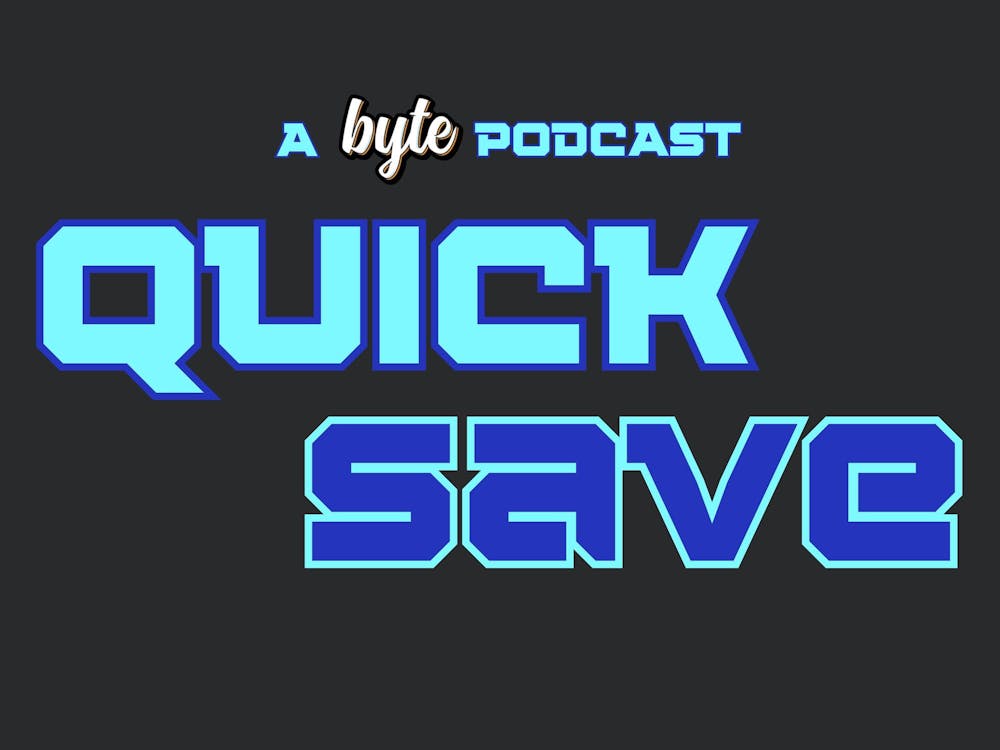The Phoenix Wright Ace Attorney trilogy is one of the greatest stories ever told in gaming. The story of the rookie attorney going from his first case to becoming one of the greatest defense attorneys in the country, the Phoenix Wright trilogy has a great way of balancing emotion, heartbreak, and intense situations with comedy, silliness, and fun storytelling. However, despite Capcom wanting more games, Phoenix's story was finished, thus creating an interesting challenge for series director Shu Takumi. He decided to make a brand new character: Apollo Justice. Following a similar path, Apollo’s career begins with his first ever case and continues all the way until he owns his own law firm. However, unlike Phoenix’s more personal story, Apollo is tasked to fix corruption in his country’s courts, bring an end to the dark age of the law and revolutionizing a whole country's law system. With the recent successes of the Phoenix Wright trilogy and the Great Ace Attorney duology, Capcom repackaged Apollo Justice, Dual Destinies, and Spirit of Justice as one trilogy: The Apollo Justice Ace Attorney Trilogy. Now is the perfect time to see how these games hold up as standalone titles and as one overarching story.
Apollo Justice is just fine!

Taken from Nintendo
The first game included in the trilogy is one of the most polarizing games in the series. Apollo Justice: Ace Attorney, originally released in 2007 on the Nintendo DS, features some of the greatest moments and coolest gameplay additions alongside some of the worst cases in the series. The game has a fantastic start with the best intro case in the franchise, where you defend Phoenix Wright from a murder and the culprit is your boss, Kristoph Gavin. With high-stakes already established for the rest of the game, Apollo, and by extension the player, does not really know who to believe as his boss is now a convicted murder and Phoenix gave you falsified evidence to convict Gavin. However, the next two cases don’t live up to the high expectations. The second case features an annoying defendant, a boring mob story, and a drawn out segment cross examining a panties thief that adds nothing to the story. The third case is very nonsensical, with a blind, foreign twelve-year-old accused of killing his manager thrice the size of him, which is fundamentally impossible and too silly even for this series. The final case is really good, and one of my personal favorites, however it has little focus on Apollo. Instead, a bulk of the story is Phoenix’s last case and the day after that case. With the exception of the first case, Apollo’s story is poorly written with aspects brought up that go nowhere.
Although the game’s story may be lacking, the gameplay additions greatly make up for it. While the standard courtroom and investigation segments stay as good as ever, both segments have new minigames to add some variety. During investigations, you’ll be granted a chance to do stuff like figuring out fingerprints, matching shoe prints with the right shoe, separate audio channels on a soundboard, and discover the hidden sketch behind a painting. While they were all originally made to take advantage of the DS’s touchscreen, the trilogy version now has standard button controls for these actions. In the courtroom, Apollo’s bracelet will tighten sometimes, allowing you to go into perceive mode. In this mode, you look for subtle movements in the witness to find a contradiction. It’s a lot of fun and allows you to examine all the little details on the beautifully drawn sprites. Apollo himself is a little generic, but he has more energy and more sarcasm to distinguish himself from the trilogy's version of Phoenix. This game’s version of Phoenix is very mysterious and cryptic, while still being the lovable and kind man we played as in the first three games. Trucy Wright, Phoenix's adopted daughter, is an adorable sidekick who never fails to lighten the mood of any situation she and Apollo are in. Klavier Gavin is a great rival prosecutor who is very helpful and friendly, the only prosecutor in the series like that in their debut game. Detective Ema Skye’s joke of hating her job can get annoying at times, but she does provide many of the game’s humorous moments and is a lot of fun when she’s excited about something. While Apollo Justice is a flawed game on its own, as a start of a trilogy it offers a fun restart on the series for new players with plenty of room for both the scale of the game and Apollo’s story to grow.
Dual Destinies is a dueling disappointment

Taken from Nintendo
Released in 2013 for the Nintendo 3DS, Phoenix Wright Ace Attorney: Dual Destinies is a disappointment from the title alone. Since this is technically a Phoenix Wright game, this means that Phoenix Wright is one of the three main characters, alongside Apollo and new attorney Athena Cykes. To make matters worse for Apollo’s story, most of the previous game’s development is missing since the new director, Takeshi Yamazaki, wanted to focus on an experience that would be “as self-encapsulated as [they] could [make]”. Despite Apollo Justice leaving many players, myself included, wanting more answers about Apollo’s character and history, Dual Destinies does not supply that. All that we get is that the victim in episode four, Clay Terran, was Apollo’s childhood friend. The character that does get a lot of development is newcomer Athena. Being her debut game, she gets a good amount of attention. We start the game by learning she’s traumatized by the courtroom, but became an attorney to save her friend. In episode three, we learn more about her friend, Juniper Woods, and her friend she’s trying to save, prosecutor Blackquill, as well as seeing her blossom into her own attorney as she takes the lead on this case. And in episode five, we learn all about her past, how she thinks she killed her own mother, and that Blackquill took the fall for her. It’s a very strong and intense story for a new character that has a good, clear beginning, middle, and end.
Dual Destinies, partly because they’re trying to put three plotlines into one five-episode story, has some of the worst set of cases in the series. Episodes three and five are fantastic because they focus on Athena and her great plotline. The DLC episode is silly and a lot of fun, featuring Phoenix defending an orca as his first trial back. It leads to a genuinely heartfelt moment with the killer and the victim. However, all of these cases, while good, are nowhere near as good as the top tier cases of the other games. The other three episodes are pretty boring with not much going on, with episode two especially being long and dragged out, making it a slog to play through.
This game does have some solid gameplay additions, however that makes playing through the games a lot more comfortable. You can now move to any location you’ve been to already, instead of needing to go to one place just to get to another. When investigating, a check mark shows up next to things you’ve already investigated. There’s now a journal for telling you where you need to go next so you don’t get lost. Each attorney has a unique ability: Phoenix and his magatama, Apollo and his bracelet, and Athena with the mood matrix adding for a bunch of fun and varied gameplay styles to spice things up when they start to get repetitive. Dual Destinies may be the weakest game in the series, but it created the structure for the final game in the trilogy: Spirit of Justice.
Spirit of a Justified Conclusion
The final game in the series, 2016’s Spirit of Justice, offers a fantastic end to the Ace Attorney series. Spirit of Justice uses everything good from Dual Destinies and builds off it. Apollo, Athena, and Phoenix are all still here with their respective gimmick, with the story being split between two countries, Apollo and Athena in America and Phoenix visiting the kingdom of Khura’in. In Khura’in, lawyers are despised and are treated just as guilty as their client, causing a severe lack of lawyers in the country. While Phoenix was there to visit his friend and assistant in the original trilogy, Maya Fey, he found himself in a couple of court cases, unintentionally starting a revolution in the kingdom. This leads to Apollo and Athena running the office by themselves, where Apollo starts to have thoughts of breaking away from the Wright Anything Agency. All of it wraps up in one of my favorite cases in the whole series: Turnabout Revolution. The case is split up into two parts: a civil case against Phoenix and a murder trial in Khura’in. Apollo gets to prove his worth by beating Phoenix in a civil trial, turned murder trial and then bringing a revolution in Khura’in, taking down the corrupt evil queen that ruined their legal system. In the end, Apollo decides to stay in Khura’in, creating his own law firm. It’s a perfect sendoff for Apollo’s character, surpassing his mentor and inspiration. Phoenix also gets a nice sendoff in the DLC case, Turnabout Time Traveler. This case plays very similarly to a Trilogy case with Phoenix on defense, Maya as the assistant, Edgeworth as the prosecutor, and Larry Butz as the inciting incident, just like in the first game. Athena sadly gets no focus, with her only spotlight case in this game being really bad. Other than the improved cases, the game looks and plays similarly to dual destinies, but better as they mastered the engine by this point. Spirit of Justice is a great end to Apollo’s story, while giving him room to grow in Khura’in.
New Year, New Content
Along with a collection of these three Ace Attorney games, the Apollo Justice trilogy comes with a ton of new extras. For starters, all the games got major visual upgrades, going from the pixelated games on the DS and 3DS to beautiful HD art. There is also an art gallery and music player to view and listen to the amazing art and catchy music of these games. Capcom also included the animation studio, a way for you to put any character in any pose in any location. It is a little pointless, but cool to see characters in ways that they were never supposed to be. Finally for additions, Capcom added story mode to play through the game without having to do the puzzle solving yourself and achievements for doing certain tasks. There’s not a ton of new content, but there is enough new for returning players to get some value out of this collection.
Great for fans, less great for newcomers
The Apollo Justice Ace Attorney Trilogy is a great set of games. While I was quite harsh on it, that is only because it is following up the Phoenix Wright Trilogy, a near perfect set of games. The Apollo trilogy has some character and story issues, but it mostly succeeds at the story it tries to tell, while looking and sounding beautiful. This trilogy is one I recommend more to already existing Ace Attorney fans, rather than newcomers to the series, however these are all fantastic games that are worth playing.

Sources: AceAttorney, IMDb, AceAttorney, IMDb, IMDb, IMDb, AceAttorney, Nintendo, Nintendo, IMDb, AnimeNewsNetwork
Photos: Nintendo, Nintendo, Nintendo
Contact Mason Mundy with comments at mason.mundy@bsu.edu


















